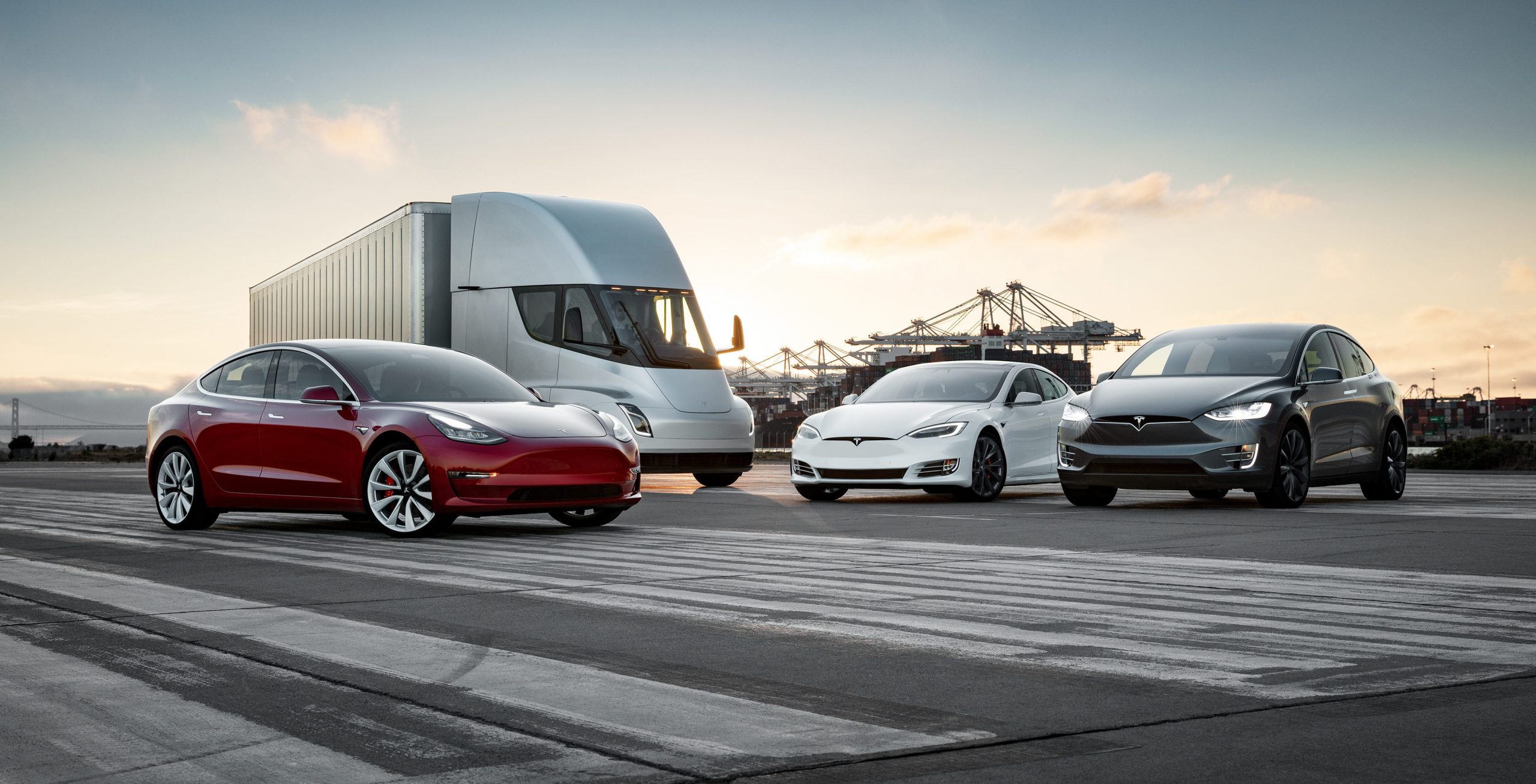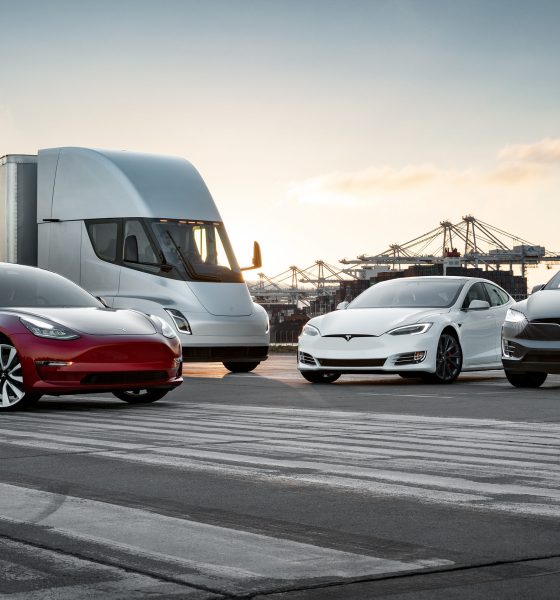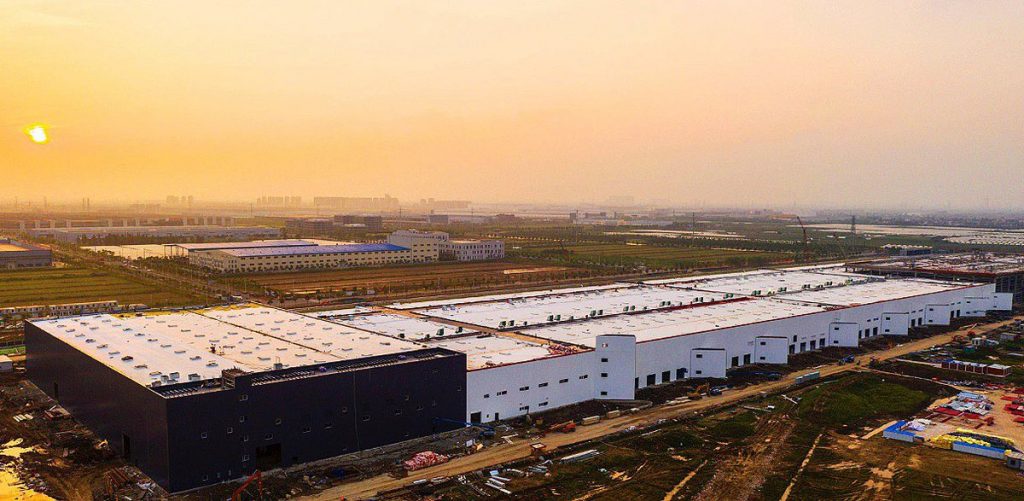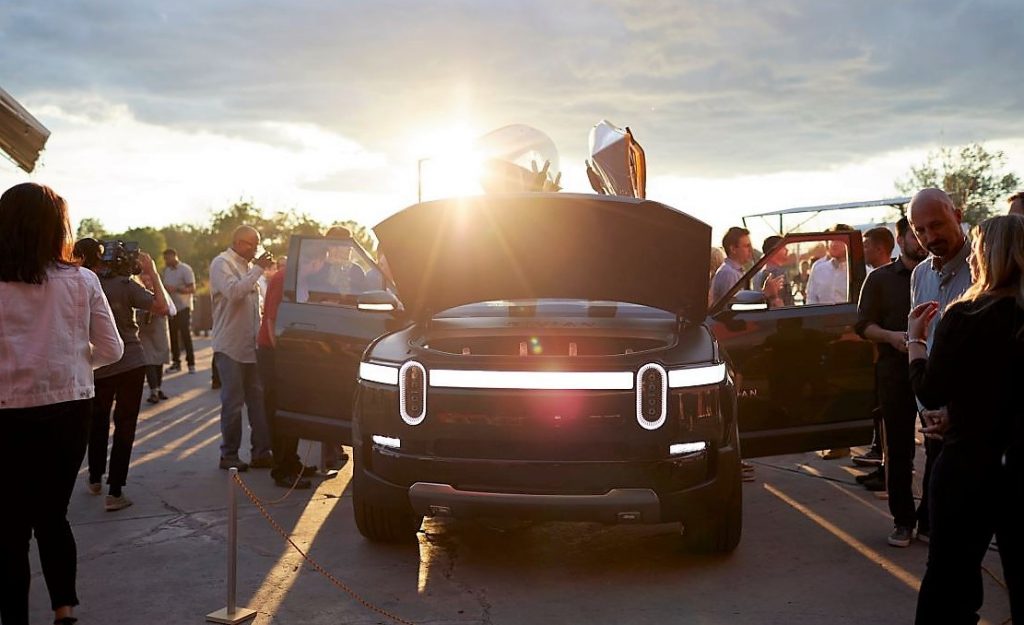

News
Tesla Effect: Expert dives into EV adoption and the internal combustion engine’s death
When Elon Musk took the helm as CEO of Tesla, he aimed to disrupt the transportation industry to such a degree that electric mobility becomes the preferred, primary form of transportation. It was a lofty goal, near-impossible at the time. Yet, more than a decade and several all-electric vehicles later, Musk’s dream and his all-too-familiar Master Plan are actually happening.
Spurred by the success and the demand generated by vehicles like the Tesla Model S and Model 3, the auto industry is shifting towards electric transportation. Coupled with the ongoing climate emergency, several regions across the globe are also looking to drastically reduce their emissions, and one of the ways they are doing that is by phasing out the internal combustion engine. Paul Eichenberg, managing director of Paul Eichenberg Strategic Consulting and a longtime veteran in the auto industry, discussed these shifts in a recent appearance at Autoline After Hours.
During his discussions, Eichenberg noted that the auto industry, including the companies comprising its large supply chain, is already undergoing a steady departure from ICE technology. Aggressive emissions targets in regions such as Europe and China will eventually make it impossible for gas and diesel-powered vehicles to comply unless they become electric. Technological advancements such as autonomous driving solutions are also becoming a priority. This could be seen in how massive companies such as Volkswagen and Ford are currently partnering in a push towards EVs and full self-driving technology. Eichenberg noted that there would likely be more high-profile collaborations in the near future.

It is at this point that Tesla’s disruption, the “Tesla Effect,” if you may, becomes incredibly evident. Tesla might still be learning the ropes when it comes to running a car business, but it is becoming undeniable that the company has created an objectively superior product. Sandy Munro, who has torn down the Tesla Model 3 and other EVs like the Chevy Bolt and the BMW i3, remarked that Tesla’s electric sedan is at least a generation ahead of what other companies have put on the road in terms of the architecture, the electronic systems, and the software surrounding the vehicle. Tesla still needs to figure out a consistent way to make money, but in terms of the electric cars themselves, the company seems to have everything figured out.
With traditional auto catching up to upstart companies like Tesla, large carmakers are now looking to leverage the innovations from younger, smaller companies. This could be seen in how Ford willingly invested in Rivian, which has developed its own skateboard platform that features much of the same concepts as Tesla’s skateboard chassis. Eichenberg, citing an OEM he spoke with prior to the announcement of Ford’s Rivian investment, stated that building a skateboard similar to Rivian’s and Tesla’s will likely result in a seven-year lead in the marketplace.
With electric cars being far more straightforward in terms of parts and components, a significant number of companies whose businesses rely on the internal combustion engine are currently being faced with a dilemma. Eichenberg gave an example of this in a brief discussion about forgings. “If you look at the forgings, a typical vehicle like the Pacifica — you know, V6, 8-speed — that has 107 forgings in it, in just that traditional ICE engine ecosystem. When you go to an electric vehicle, whether it’s the (BMW) i3, the Teslas, the (Chevy) Bolt, whatever it is, there’s eight or nine. So you have a 90% over-capacitation of an industry. And here’s an industry that’s only 90 billion globally, and half of everything it does is in the engine-transmission ecosystem,” he said.

Elaborating further, Eichenberg mentioned that big-tier corporations such as Honeywell and Delphi, whose businesses are tied to the internal combustion engine, are now positioning themselves through spinoffs as a way to shed their ICE-centered assets. Unfortunately, smaller companies don’t have it as easy, particularly as private equities and investors do not seem interested in ICE innovations anymore. Eichenberg shared the story of Dayco, a private equity-owned business which experienced multiple failed sale processes. Eventually, the company ended up taking the deal to China, where it failed to receive a single bid. Among the key reasons behind these failures was Dayco’s line of business.
“Why is Dayco an indication of what private equities are going to do? It’s because Dayco makes pulley systems that go in front of the internal combustion engine. And of course, what’s been the first element to be electrified? All the pumps and all these systems that run off this pulley system. So, the market has already recognized, ‘Hey you know what, we’re not interested in these types of assets,’” he said.
Overall, it appears that traditional automakers’ decision to “wait and see” if Tesla survives and succeeds was a miscalculation at best. As it turned out, well-designed, long-range electric cars caught on, and with the advent of the Tesla Model 3 Standard Plus, which currently starts below $40,000 with Autopilot as standard, it is now becoming quite evident just how much catching up is needed for traditional auto to thrive (or even survive) in the age of the electric car. Yet, as more large automakers collaborate on technology that companies like Tesla have developed on their own, and as investments flow into young, innovative companies like Rivian, it is becoming a certainty that the internal combustion engine is indeed on its twilight years.
Watch Paul Eichenberg’s segment in Autoline After Hours in the video below.

News
Tesla ships out update that brings massive change to two big features
“This change only updates the name of certain features and text in your vehicle,” the company wrote in Release Notes for the update, “and does not change the way your features behave.”

Tesla has shipped out an update for its vehicles that was caused specifically by a California lawsuit that threatened the company’s ability to sell cars because of how it named its driver assistance suite.
Tesla shipped out Software Update 2026.2.9 starting last week; we received it already, and it only brings a few minor changes, mostly related to how things are referenced.
“This change only updates the name of certain features and text in your vehicle,” the company wrote in Release Notes for the update, “and does not change the way your features behave.”
The following changes came to Tesla vehicles in the update:
- Navigate on Autopilot has now been renamed to Navigate on Autosteer
- FSD Computer has been renamed to AI Computer
Tesla faced a 30-day sales suspension in California after the state’s Department of Motor Vehicles stated the company had to come into compliance regarding the marketing of its automated driving features.
The agency confirmed on February 18 that it had taken a “corrective action” to resolve the issue. That corrective action was renaming certain parts of its ADAS.
Tesla discontinued its standalone Autopilot offering in January and ramped up the marketing of Full Self-Driving Supervised. Tesla had said on X that the issue with naming “was a ‘consumer protection’ order about the use of the term ‘Autopilot’ in a case where not one single customer came forward to say there’s a problem.”
This was a “consumer protection” order about the use of the term “Autopilot” in a case where not one single customer came forward to say there’s a problem.
Sales in California will continue uninterrupted.
— Tesla North America (@tesla_na) December 17, 2025
It is now compliant with the wishes of the California DMV, and we’re all dealing with it now.
This was the first primary dispute over the terminology of Full Self-Driving, but it has undergone some scrutiny at the federal level, as some government officials have claimed the suite has “deceptive” names. Previous Transportation Secretary Pete Buttigieg was one of those federal-level employees who had an issue with the names “Autopilot” and “Full Self-Driving.”
Tesla sued the California DMV over the ruling last week.
News
Tesla workers push back against Giga Berlin unionization
“IG Metall did not succeed in Giga Berlin‘s works council election earlier today. The union share was reduced from nearly 40% in 2024 to 31% in 2026! This is a clear message by the Giga Berlin team towards an independent co-determination! The list called Giga United, led by the current chairwoman, Michaela Schmitz, received the most votes with more than 40%! Good news for Giga Berlin!”

Tesla workers pushed back against unionization efforts at Gigafactory Berlin, and over the past few years, there has been a dramatic decrease in interest to unionize at the German plant.
Gigafactory Berlin Plant Manager André Thierig announced on Wednesday that IG Metall, the European union group, saw its share reduce from 40 to 31 percent in 2026 as employees eligible to vote on the issue. Instead, the Giga Berlin team, known as Giga United, received the most votes with more than 40 percent.
BREAKING! 🚨
IG Metall did not succeed in Giga Berlin‘s works council election earlier today. The union share was reduced from nearly 40% in 2024 to 31% in 2026!
This is a clear message by theGiga Berlin team towards an independent co-determination!
The list called Giga…
— André Thierig (@AndrThie) March 4, 2026
Thierig gave specific details in a post on X:
“IG Metall did not succeed in Giga Berlin‘s works council election earlier today. The union share was reduced from nearly 40% in 2024 to 31% in 2026! This is a clear message by the Giga Berlin team towards an independent co-determination! The list called Giga United, led by the current chairwoman, Michaela Schmitz, received the most votes with more than 40%! Good news for Giga Berlin!”
There were over 10,700 total employees who were eligible to vote, with 87 percent of them turning out to cast what they wanted. There were three key outcomes: Giga United, IG Metall, and other notable groups, with the most popular being the Polish Initiative.
The 37-seat council remains dominated by non-unionized representatives, preserving Giga Berlin as Germany’s only major auto plant without a collective bargaining agreement.
Thierig and Tesla framed the outcome as employee support for an “independent, flexible, and unbureaucratic” future, enabling acceleration on projects like potential expansions or new models. IG Metall expressed disappointment, accusing management of intimidation tactics and an “unfair” campaign.
The first election of this nature happened back in 2022. In 2024, IG Metall emerged as the largest single faction with 39.4 percent, but non-union lists coalesced for a majority.
But this year was different. There was some extra tension at Giga Berlin this year, as just two weeks ago, an IG Metall rep was accused by Tesla of secretly recording a council meeting. The group countersued for defamation.
Tesla Giga Berlin plant manager faces defamation probe after IG Metall union complaint
This result from the 2026 vote reinforced Tesla’s model of direct employee-management alignment over traditional German union structures, amid ongoing debates about working conditions. IG Metall views it as a setback but continues advocacy. Tesla sees it as validation of its approach in a competitive EV market.
This outcome may influence future labor dynamics at Giga Berlin, including any revival of expansion plans or product lines, which Musk has talked about recently.
News
SpaceX President Gwynne Shotwell details xAI power pledge at White House event
The commitment was announced during an event with United States President Donald Trump.

SpaceX President Gwynne Shotwell stated that xAI will develop 1.2 gigawatts of power at its Memphis-area AI supercomputer site as part of the White House’s new “Ratepayer Protection Pledge.”
The commitment was announced during an event with United States President Donald Trump.
During the White House event, Shotwell stated that xAI’s AI data center near Memphis would include a major energy installation designed to support the facility’s power needs.
“As you know, xAI builds huge supercomputers and data centers and we build them fast. Currently, we’re building one on the Tennessee-Mississippi state line. As part of today’s commitment, we will take extensive additional steps to continue to reduce the costs of electricity for our neighbors…
“xAI will therefore commit to develop 1.2 GW of power as our supercomputer’s primary power source. That will be for every additional data center as well. We will expand what is already the largest global Megapack power installation in the world,” Shotwell said.
She added that the system would provide significant backup power capacity.
“The installation will provide enough backup power to power the city of Memphis, and more than sufficient energy to power the town of Southaven, Mississippi where the data center resides. We will build new substations and invest in electrical infrastructure to provide stability to the area’s grid.”
Shotwell also noted that xAI will be supporting the area’s water supply as well.
“We haven’t talked about it yet, but this is actually quite important. We will build state-of-the-art water recycling plants that will protect approximately 4.7 billion gallons of water from the Memphis aquifer each year. And we will employ thousands of American workers from around the city of Memphis on both sides of the TN-MS border,” she noted.
The Ratepayer Protection Pledge was introduced as part of the federal government’s effort to address concerns about rising electricity costs tied to large AI data centers, as noted in an Insider report. Under the agreement, companies developing major AI infrastructure projects committed to covering their own power generation needs and avoiding additional costs for local ratepayers.








